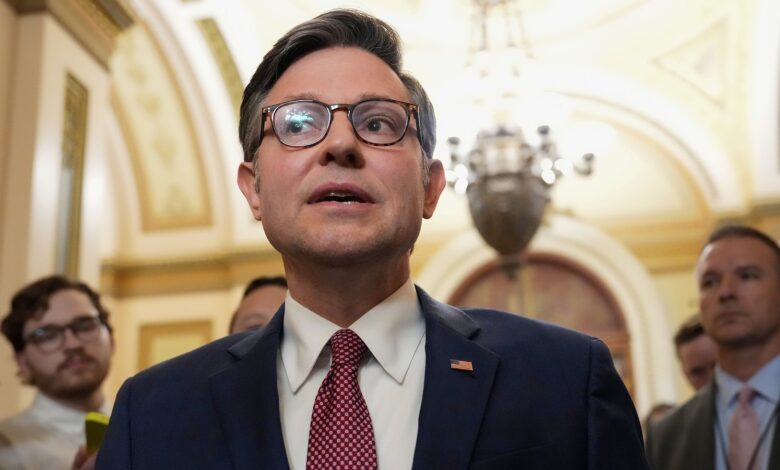Republican hard-liners defy Trump, Johnson as megabill fails to advance

The House Budget Committee faced a setback on Friday afternoon as a vote on the megabill aimed at advancing President Donald Trump’s agenda failed to progress. Despite efforts from Trump and Speaker Mike Johnson to garner support, Republican Reps. Andrew Clyde, Josh Brecheen, Lloyd Smucker, Ralph Norman, and Chip Roy voted against clearing the bill out of committee.
The dissenting group raised concerns that the majority of savings in the legislation would only take effect after Trump’s term in office. Norman specifically highlighted the need for commitments from leadership on changes to Medicaid work requirements, which are not set to be implemented until 2029.
With just 16 lawmakers in favor and 21 voting against, the committee vote failed, presenting a setback for Johnson and Trump. Trump had previously urged the holdouts to unite behind the bill, emphasizing the importance of party unity.
Following the failed vote, negotiations will continue behind closed doors, with the Budget Committee reconvening on Sunday night. While the delay is not ideal, there is still a possibility that the bill could clear the House before the Memorial Day recess.
The House Freedom Caucus expressed readiness to continue negotiations over the weekend to address the concerns raised by the dissenting members. Despite the challenges faced, Majority Leader Steve Scalise emphasized the importance of the bill’s timeline in enabling the administration to implement key provisions gradually.
Rep. Marlin Stutzman acknowledged the valid concerns raised by Norman but emphasized that the consensus product of 11 markups is a good starting point. He highlighted the potential for the Senate to further improve the bill, noting that it contains essential components to stimulate economic growth.
Overall, the need for party unity and consensus-building remains crucial as efforts continue to advance the legislation and get the economy back on track. The ongoing negotiations and discussions aim to address concerns raised by dissenting members while ensuring that the bill aligns with the administration’s agenda and priorities.





